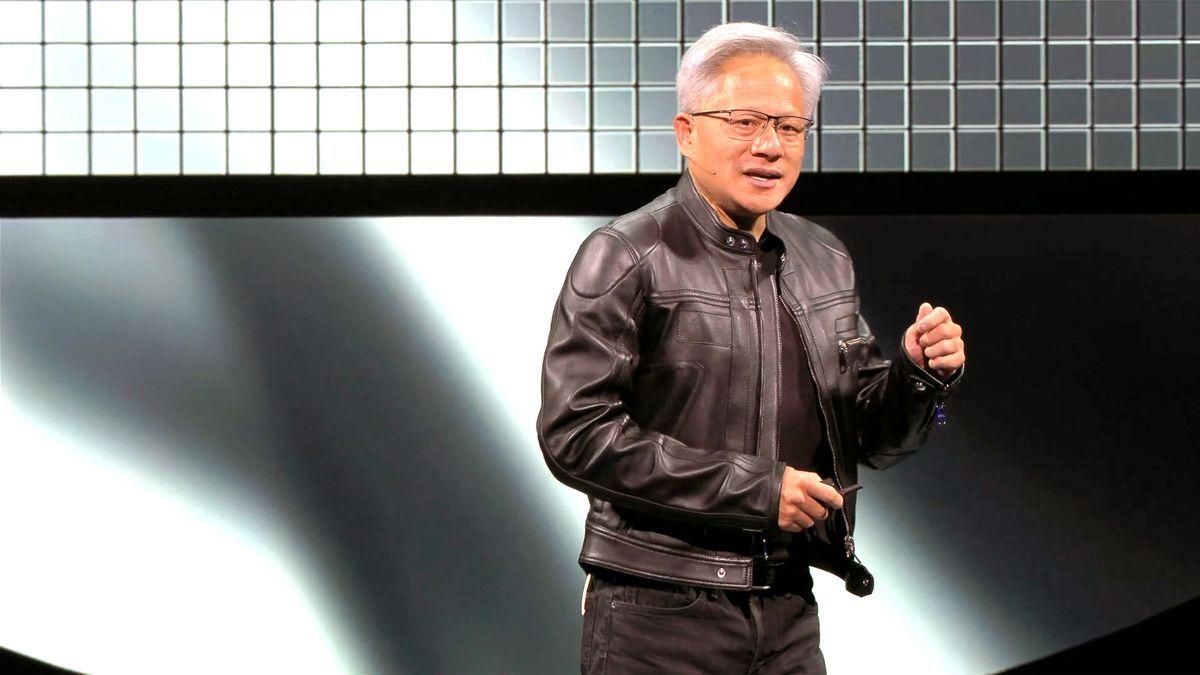US Regulators Deny Rehearing on Amazon-Talen Energy Data Center Power Deal
2 Sources
2 Sources
[1]
US regulators deny rehearing on co-located Amazon data center energy pact
NEW YORK, April 11 (Reuters) - U.S. energy regulators this week denied a request to reconsider a decision that blocked an Amazon (AMZN.O), opens new tab data center, connected directly to a Talen Energy (TLN.O), opens new tab nuclear power plant in Pennsylvania, from ramping up its power use, government filings show. Big Tech's race to secure massive amounts of electricity to fuel its AI data centers has led to unprecedented arrangements with power companies, including new types of so-called co-located deals, where the giant computer warehouses are powered right from the power source. The arrangements have promised to speed up the technology industry's artificial intelligence expansion by eliminating wait times to connect to the broader grid and have propelled company shares of independent power companies like Talen on the prospect of signing multiple co-located power deals. Members of the Federal Energy Regulatory Commission have voiced concern about how the Amazon data center, which diverts electricity from the broader grid, might affect power reliability and costs for the general public. In November, FERC rejected Talen's request to increase power supplied to the Amazon data center beyond 300 megawatts. When Talen Energy sold the data center to Amazon, the company said the facility could use almost 1,000 megawatts of energy supplied directly from Talen's Susquehanna nuclear facility. FERC, on Thursday, denied Talen's request for a rehearing on the matter. The commission is still considering broader rules governing co-located data centers. Reporting by Laila Kearney; editing by Philippa Fletcher Our Standards: The Thomson Reuters Trust Principles., opens new tab Suggested Topics:Boards, Policy & RegulationRegulatory OversightGovernanceGrid & InfrastructureNuclear
[2]
US regulators deny rehearing on co-located Amazon data center energy pact
NEW YORK (Reuters) - U.S. energy regulators this week denied a request to reconsider a decision that blocked an Amazon data center, connected directly to a Talen Energy nuclear power plant in Pennsylvania, from ramping up its power use, government filings show. Big Tech's race to secure massive amounts of electricity to fuel its AI data centers has led to unprecedented arrangements with power companies, including new types of so-called co-located deals, where the giant computer warehouses are powered right from the power source. The arrangements have promised to speed up the technology industry's artificial intelligence expansion by eliminating wait times to connect to the broader grid and have propelled company shares of independent power companies like Talen on the prospect of signing multiple co-located power deals. Members of the Federal Energy Regulatory Commission have voiced concern about how the Amazon data center, which diverts electricity from the broader grid, might affect power reliability and costs for the general public. In November, FERC rejected Talen's request to increase power supplied to the Amazon data center beyond 300 megawatts. When Talen Energy sold the data center to Amazon, the company said the facility could use almost 1,000 megawatts of energy supplied directly from Talen's Susquehanna nuclear facility. FERC, on Thursday, denied a request for a rehearing on the matter. Talen, which has separately asked a U.S. appeals court to weigh FERC's rejection, said it wasn't surprised by the decision. "The ruling now allows us to pursue our appeal rights on the merits in the Fifth Circuit," Talen spokesperson Taryne Williams said on Friday. FERC is still considering establishing broader rules governing co-location as it becomes and increasingly popular choice for data center developers. (Reporting by Laila Kearney; editing by Philippa Fletcher)
Share
Copy Link
The Federal Energy Regulatory Commission (FERC) has denied a request to reconsider its decision blocking an Amazon data center from increasing its power consumption beyond 300 megawatts, highlighting the growing tension between AI-driven energy demands and public utility concerns.

FERC Rejects Rehearing on Amazon-Talen Energy Data Center Power Deal
The Federal Energy Regulatory Commission (FERC) has denied a request to reconsider its decision that blocked an Amazon data center from increasing its power consumption beyond 300 megawatts 1. This decision highlights the growing tension between the energy demands of AI-driven technology and concerns about public utility reliability and costs.
Background on Co-located Data Centers
The case revolves around a new trend in the tech industry known as "co-located" deals. These arrangements involve giant computer warehouses being powered directly from the power source, bypassing the broader grid 1. This approach has gained popularity as Big Tech companies race to secure massive amounts of electricity to fuel their AI data centers.
The Amazon-Talen Energy Deal
Amazon purchased a data center from Talen Energy, which is directly connected to Talen's Susquehanna nuclear power plant in Pennsylvania. Initially, Talen Energy claimed the facility could use almost 1,000 megawatts of energy supplied directly from the nuclear facility 2. However, FERC rejected Talen's request to increase power supply beyond 300 megawatts in November.
FERC's Concerns and Decision
FERC members have expressed concerns about how the Amazon data center, which diverts electricity from the broader grid, might affect power reliability and costs for the general public 1. These concerns led to the initial rejection in November and the recent denial of the rehearing request.
Industry Implications
The co-located deals have promised to accelerate the technology industry's artificial intelligence expansion by eliminating wait times to connect to the broader grid. This prospect has boosted the shares of independent power companies like Talen, as investors anticipate multiple co-located power deals 2.
Next Steps and Broader Implications
Talen Energy, while not surprised by the decision, plans to pursue its appeal rights on the merits in the Fifth Circuit 2. Meanwhile, FERC is considering establishing broader rules governing co-location as it becomes an increasingly popular choice for data center developers.
This case underscores the complex challenges facing regulators as they attempt to balance the energy needs of rapidly advancing AI technologies with the broader public interest. As the demand for AI-powered services continues to grow, finding sustainable and equitable solutions for energy distribution will remain a critical concern for both the tech industry and regulatory bodies.
Nvidia CEO Jensen Huang Addresses AI Job Concerns, Emphasizes Innovation and Productivity
Jensen Huang, CEO of Nvidia, discusses the potential impact of AI on jobs, emphasizing the importance of continued innovation and productivity gains to offset potential job losses.
4 Sources
Technology
14 hrs ago

4 Sources
Technology
14 hrs ago
Elon Musk Proposes Tesla Shareholder Vote on xAI Investment, Sparking Controversy and Speculation
Elon Musk announces potential Tesla investment in his AI startup xAI, subject to shareholder approval. The move raises questions about conflicts of interest and the future of AI in Tesla's ecosystem.
7 Sources
Business and Economy
6 hrs ago

7 Sources
Business and Economy
6 hrs ago
Meta Acquires Voice AI Startup PlayAI, Bolstering AI Capabilities
Meta has acquired PlayAI, a startup specializing in AI-generated human-like voices, as part of its aggressive expansion into artificial intelligence. The entire PlayAI team will join Meta, reporting to Johan Schalkwyk, a recent hire from another voice AI startup.
6 Sources
Technology
22 hrs ago

6 Sources
Technology
22 hrs ago
Malaysia Implements Permit Requirements for US-Origin AI Chip Trade Amid Global Tech Tensions
Malaysia introduces new regulations requiring permits for the export, transshipment, and transit of high-performance US-origin AI chips, aiming to prevent illegal trade and address concerns over potential diversion to countries like China.
5 Sources
Policy and Regulation
14 hrs ago

5 Sources
Policy and Regulation
14 hrs ago
AI Application Revolutionizes Endocrine Cancer Diagnosis with High Speed and Accuracy
A novel AI-powered application for diagnosing endocrine cancers with exceptional speed and accuracy is presented at ENDO 2025, promising to democratize expert-level cancer diagnostics globally.
2 Sources
Health
14 hrs ago

2 Sources
Health
14 hrs ago